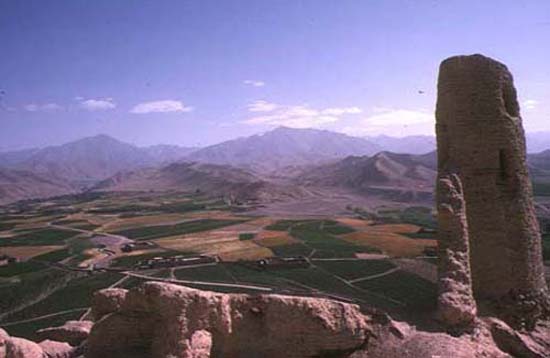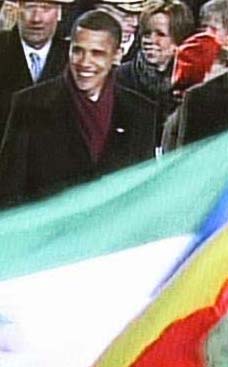
Increasingly, Karzai is being seen as an impediment to change rather than a facilitator. He has not been effective in overseeing many things that are central to solving the various indigenous problems such as drugs, smuggling, corruption and nepotism. Many, including the current U.S. administration, NATO, and other leaders in Afghanistan are beginning to call for a change in government. General David Petraeus seems to see the large picture and he, along with others in the region realize the necessity of bringing together Afghanistan, Pakistan, Iran, Russia and China to find a reasonable solution to these intractable problems. It is one of the encouraging initiatives coming from that difficult place these days. It is encouraging that President Obama met with General Petraeus on his first or second day in office and it will be a welcome sign if one of President Obama's early actions is to respond to these calls for regional cooperation.
RPCV Charles Stroh writes: Afghanistan may need a change in government to make addition of 30,000 U.S. troops worthwhile
Afghanistan may need a change in government to make addition of 30,000 U.S. troops worthwhile
Posted by Charles Stroh
January 29, 2009 12:56PM
In a Jan. 18 Washington Post column, NATO Secretary-General Jaap de Hoop Scheffer wrote, "The basic problem in Afghanistan is not too much Taliban; it's too little good governance. We have paid enough, in blood and treasure, to demand that the Afghan government take more concrete and vigorous action to root out corruption and increase efficiency, even where that means difficult political choices."
The United States has plans to add 30,000 additional troops to the 32,000 that we currently have there and President Barack Obama has already suggested that he agrees with that action. De Hoop Scheffer agrees that extra forces are necessary to avoid a "stalemate situation" that is becoming the new reality.
NATO and U.S. forces have already trained nearly 100,000 Afghan soldiers and police and most critics of the current government say that these forces should begin to take over greater responsibilities. But, there is unanimous agreement that these soldiers and police forces are incapable of doing what is expected of them. They are accused of substantial corruption and that is likely correct.
But, it must be remembered that only a tiny fraction of the money we send to Afghanistan ever gets to Afghans. Nearly 75 percent of every dollar goes to pay Americans and other foreigners in Afghanistan. Very little benefits the average Afghan.
The newly trained Afghan forces are drawn largely from northern, central, and western Afghanistan and not from the south and east. Among other things, this means that they might have some modicum of authority in their own ethnic areas, but little to none in Pashtun areas of the south and east. It also means that they would have little effect in Pakistan where it is the Pashtun tribal areas that are at the core of the problems between Pakistan and Afghanistan.
Historically, a national army in Afghanistan has never been effective. Successes in the past in driving out foreign invaders has come from allegiances of tribal groups that ebb and flow according to local need. That situation has not changed with the people we have trained. Simply stated, the soldiers and police cannot be trusted to act in the national interest without direct supervision by international forces.
It may be true that with additional international forces, that this local militia can be convinced to act against their personal interest and in favor of national interest, but it will not happen in one or even two generations. And, without such a national force, any president of Afghanistan cannot be effective in the tribal areas. Like it is with President Karzai, who is effectively only the President of Kabul, life in the provinces will go on without much change.
Increasingly, Karzai is being seen as an impediment to change rather than a facilitator. He has not been effective in overseeing many things that are central to solving the various indigenous problems such as drugs, smuggling, corruption and nepotism. Many, including the current U.S. administration, NATO, and other leaders in Afghanistan are beginning to call for a change in government.
General David Petraeus seems to see the large picture and he, along with others in the region realize the necessity of bringing together Afghanistan, Pakistan, Iran, Russia and China to find a reasonable solution to these intractable problems. It is one of the encouraging initiatives coming from that difficult place these days.
It is encouraging that President Obama met with General Petraeus on his first or second day in office and it will be a welcome sign if one of President Obama's early actions is to respond to these calls for regional cooperation.
Charles Stroh is a retired professor from Western Michigan University and was a Peace Corps Volunteer in Afghanistan from 1969-1971. He follows the news from that country on a daily list serve, the Afghan Online Press.













